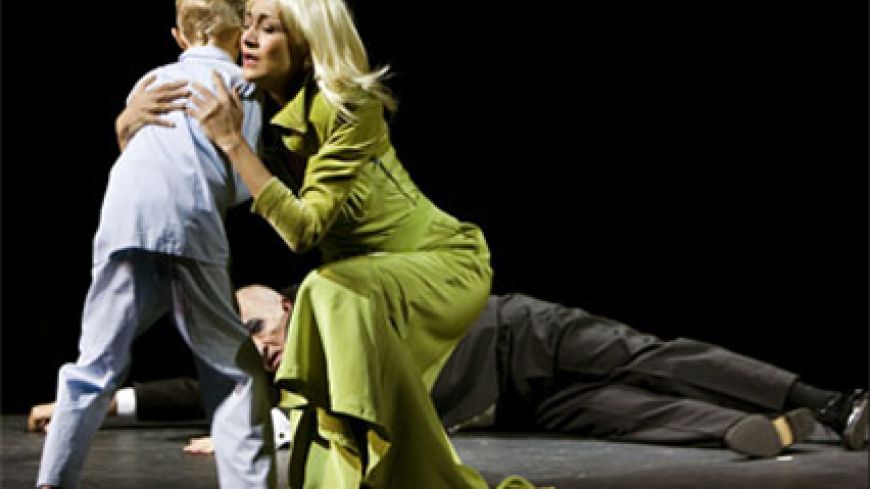
Gioachino Rossini (1792-1868) wrote thirty six operas, all within nineteen years. Semiramide is not one of the best known, but it is performed from time to time. John Copley’s production at New York’s Metropolitan Opera in 1990 is probably the recent bench mark.
Vlaamse Opera, or Flemish Opera, performs in both Antwerp and Ghent and is largely funded by the Flemish Government. Nigel Lowery’s new production of Semiramide was first performed in Belgium last December. Then, as now at the Edinburgh International Festival, the conductor was the octogenarian Alberto Zedda.
Semiramide starts with its Overture which just occasionally is played as a stand alone. Into the opera itself and there’s no familiar passage to wait for; but good solid Rossini. The Orchestra played its part admirably and some of the pizzicato was memorable.
The story is familiar. A legendary Babylonian queen has helped a lover kill the king. Her very young son disappears from her life and in due course becomes a military leader she unwittingly choses to succeed her. At the closing moments of the first Act we see a throw back to the murder fifteen years earlier. Watching aghast is the son played by Christopher Munro, born in 2003 and a pupil at Bruntsfield Primary School, who has attended Scottish Youth Theatre since he was three.
It was hard not to believe that the backdrop was a photograph taken from a British country house in a recent television programme - featured because it was just about in ruins and needed rescuing. The light green walls were a comforting feature. So too was the limited scene changing. Indeed the crimson and sparkling curtain that came across from the left but moved all the way across whilst things were going on behind was intriguing. Later it came from the right and ended up on the left with the same purpose.
The costumes were certainly not those of Rossini’s era but much more bland and actually unimportant. Oroe, the oracle, was in a salesman’s suit, Assur, the lover, was in a contemporary t-shirt. The chorus, as priests and citizens, could have been from anywhere that was rather boring, so too the uniform of their bossy-boots supervisor. But this was not jarring.
Myrto Papatanasiu, singing the title role, was competent in what is known to be a difficult part. Josef Wagner, as Assur the lover, was not as convincing but a little bit more so was Hadar Halévy, as Semiramide’s son. Robert McPherson, as Idreno, was in the best bel canto tradition. The audience liked Julianne Gearhart's Azema.
The length could have been reduced, but it is known to be a long opera and we might have felt short changed. There might well have been more interaction, touchingly human or mildly comical even, between performers, although even the arch expert John Copley at the Met struggled to achieve this. The end game came surprisingly quickly and we were spared gushing blood.
All that said, it was a very solid, comfortable production and more enjoyable, even for its four and a half hours, than I had anticipated. Vlaamse Opera are to be congratulated.
Event: Thursday 25 August 2011 at 6pm and Saturday 27 August 2011 (reviewed) at 6pm

